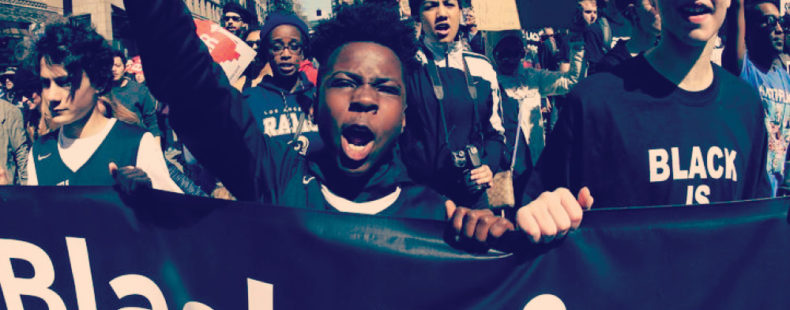WATCH: We Asked: What Does The Word "Allies" Mean To You?
It used to be that when we spoke of allies, it was most likely in a military sense, referring to countries formally banded together, usually by treaty, to fight against their enemies. Today, though, the word is used more broadly.
What does ally mean today?
An ally, ultimately from a Latin verb meaning “to bind to,” is used to describe “someone who supports disenfranchised and underrepresented groups of people within our own country, such as minorities and those in the LBGTQ+ community.”
We’re still talking about war, but it’s a different type of war—a war on bigotry, racism, sexism, hate, and ugly, ignorant words and actions. Allies use their own privilege to help raise visibility and create opportunities for those at a disadvantage.
A straight ally, for instance, is a cisgender or heterosexual person who supports and stands up for LGBTQ+ rights and representation. A white ally, as another example, is a white person who opposes and fights against the various forms of oppression people of color face—as a male ally does for gender equality for women.
How do you become an ally?
Some allies are also advocates or activists, but you don’t have to march or attend rallies to be an ally. GLAAD offers tips on how to be ally and a friend, including simple things like being a listener and being willing to give more challenging advice, such as “Confront your own prejudices and bias, even if it is uncomfortable to do so.”
That recommendation is a key component of being an ally. Being an ally is not just standing up for what’s right, but acknowledging that you may be part of the problem, too, and making the effort to address those ingrained beliefs and prejudices.
One celebrity recently in the spotlight for wearing the ally cap is Amy Schumer, who refused to appear in any 2019 Super Bowl ads to stand in solidarity with Colin Kaepernick against the way the NFL has responded to protests of racial inequality.
Can you call yourself an ally?
In many ways, the term ally is subjective. Some would argue that it’s not a title one should claim for themselves, but rather one that’s bestowed on them by people who are marginalized. Schumer has, in fact, been called out for other behavior, such as jokes some have considered racist, that many would say take her out of the ally camp.
Why we need more allies
You don’t have to have celebrity status to be an ally; anyone can be one. In fact, everyone should be one. You can’t walk in someone else’s shoes, but you can acknowledge that they were given a tougher road to travel, support them as they walk it, and try your best to improve it in any way you can.










